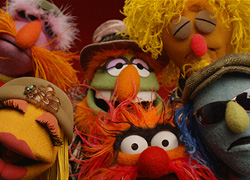General advice
Others can give you better specific advice, but I worked for years in film and video production, and also studied the subject in college, so here's my general advice.
1) Equipment comes and goes, but whether you're using a super-8 camera or the latest greatest digital video, one thing remains the same. Planning. You have to plan things out before you even touch a camera. The time honored way of doing this is with story boarding. Of course, you'll want a treatment/story outline and a script. But after these are done, you need to visualize the project, and a story board forces you to do this on a shot by shot basis, so when it comes time to shoot, you don't waste time. You will know exactly what you need to shoot, and can plan out the order in which you shoot it. Films and videos are generally not shot in sequence. You'll do your close ups of character A all at the same time. Then close ups of character B. Then all the shots of A and B on the couch. Then all the shots of A and B at the store. Whatever, you get the point. Planning. Planning. Planning. Look on the web for some examples of story boards to get an idea of the level of detail needed.
2) Can I just mention planning one more time? Thanks.
3) Too often beginners concentrate on image to the exclusion of sound. Go to your local amatuer film festival and you'll be bending your ear to make out the muddy sounding dialog. Do not rely on the builtin mic on your camera. Plan on getting some kind of external mic that can be pinned to your puppeteers. The sound will be 100 times better.
4) Editing. There are many programs on the market that allow editing of video on the computer. You'll need a large hard drive (or 2) to store all the video clips you are editing. You'll need a video card that has an input for the video from your camera, or some other way of transfering the video to the computer. Then you need to understand the basics of editing. This is an art form, and you can learn some things from trial and error, but you'll save yourself some agony by reading the editing chapter in a basic filmmaking book. For example, you don't necessarily cut the sound and image at the same time, you might cut to a reaction shot of B while A is talking. This should have been planned out before you started shooting, using your story board. Once more, planning crops it's beautiful head.
5) If what I've said above discourages you from just going for it, disregard and go for it. You'll learn a lot from just doing. But you'll save yourself lots of wasted time by planning, so the choice is yours. It is possible to just set up a camera with a simple 2 shot and have A and B talking, then use that without even editing. It will be kind of boring, but it can be done. Much of the early Henson stuff was done with a single camera angle, and this can work if your action is dynamic enough. Henson had the advantage of being a genius and of working with some highly talented people. But if you watch the sesame street segments, say an Ernie and Bert routine, there is generally a bit of editing going on, and it adds a nice rhythm to these otherwise flawless pieces. It's all a question of how much time you have and how professional you want the finished product to look.
6) Did I mention planning yet? I really should mention it at some point.
7) As far as equipment goes, you don't need the best, but get the best you can afford.
I hope that helps, and look forward to hearing what the others here have to say.

 Welcome to the Muppet Central Forum!
Welcome to the Muppet Central Forum! Back to the Rock Season 2
Back to the Rock Season 2 Sesame Street Season 54
Sesame Street Season 54 The Muppets Mayhem premieres
The Muppets Mayhem premieres Bear arrives on Disney+
Bear arrives on Disney+ Sam and Friends Book
Sam and Friends Book



